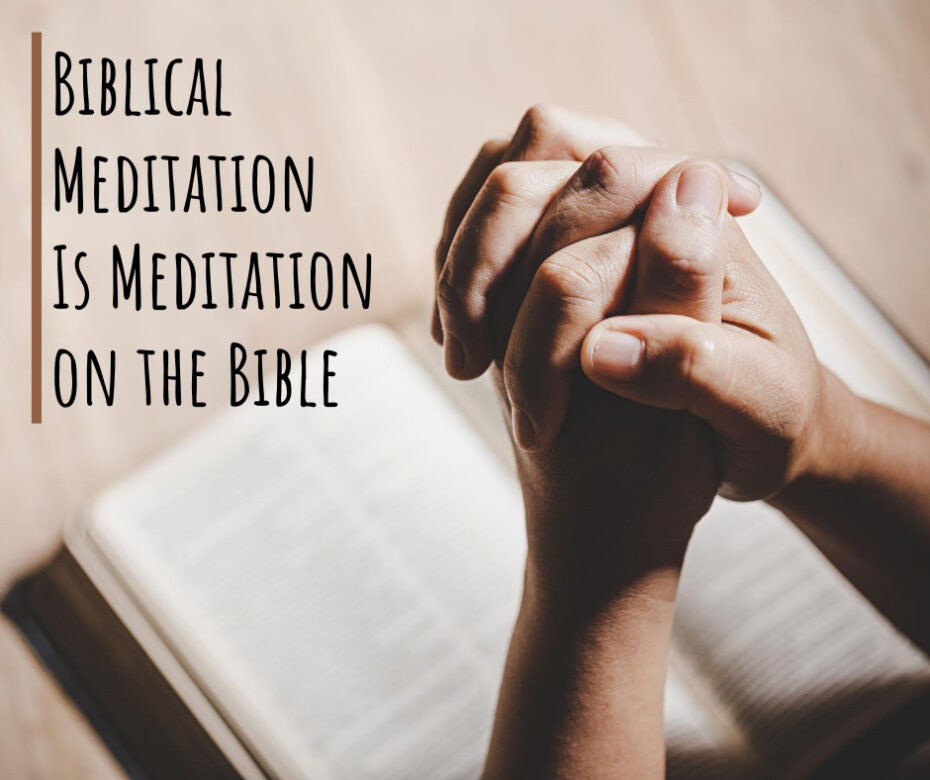What does it mean to meditate? And what does Christian meditation look like? Over the centuries, unbiblical forms of meditation have been borrowed from other religious traditions, such as Hinduism and Buddhism. Worse, many of these meditative practices grew out of, and assumed, a gospel of salvation by works, and so, meditation became yet another work to do—yet another rung on the ladder to climb—on the way to final salvation.
So what does it mean to meditate? Psalm 1:1-2 sums it up:
Blessed is the man
Who walks not in the counsel of the ungodly,
Nor stands in the path of sinners,
Nor sits in the seat of the scornful;
But his delight is in the law of the Lord,
And in His law he meditates day and night.
Biblical meditation is meditation on the Bible! Here is how John W. Kleinig put it:
Christian meditation differs from all other kinds of meditation because it concentrates on what Jesus says; it is meditation on His Word as it is given to us in the Scriptures. We meditate on His powerful Word. His Word has an impact on us as we pay attention to it, does its work in us as we listen to it, and reshapes us inwardly as we let it have its say. The words of Jesus actually produce our meditation. Yet that does not happen automatically but only as we put our trust in it (Grace Upon Grace, 100).
Are you reading, concentrating on, paying attention to, listening to, and trusting in, the Scriptures? That’s Biblical meditation.


